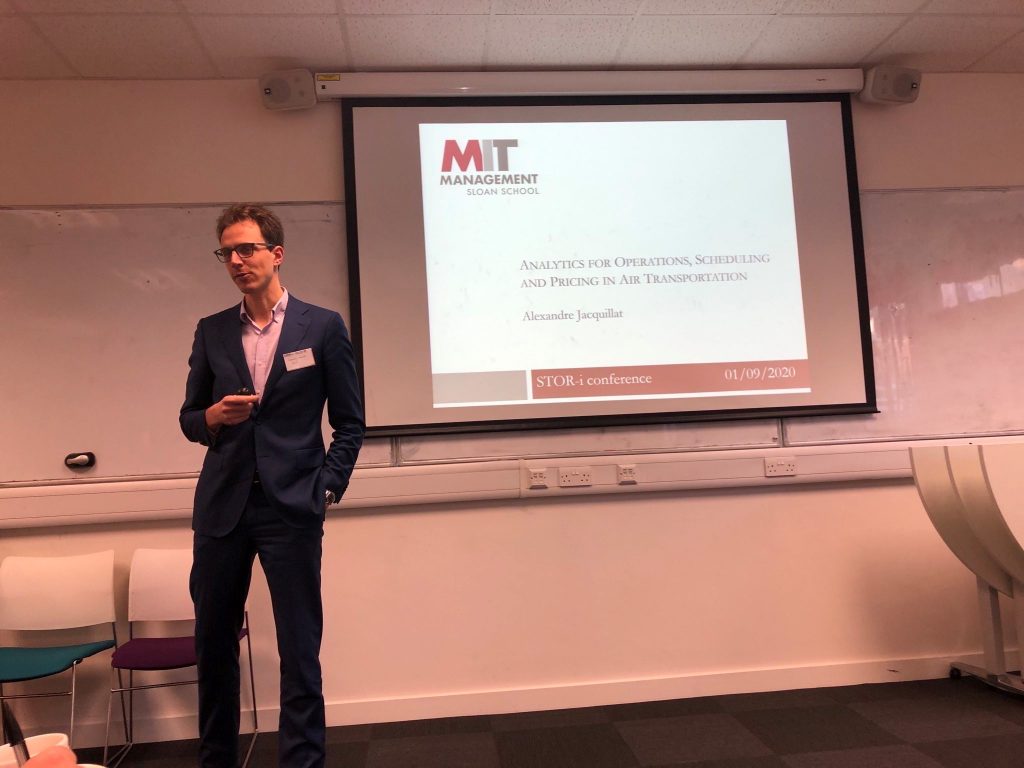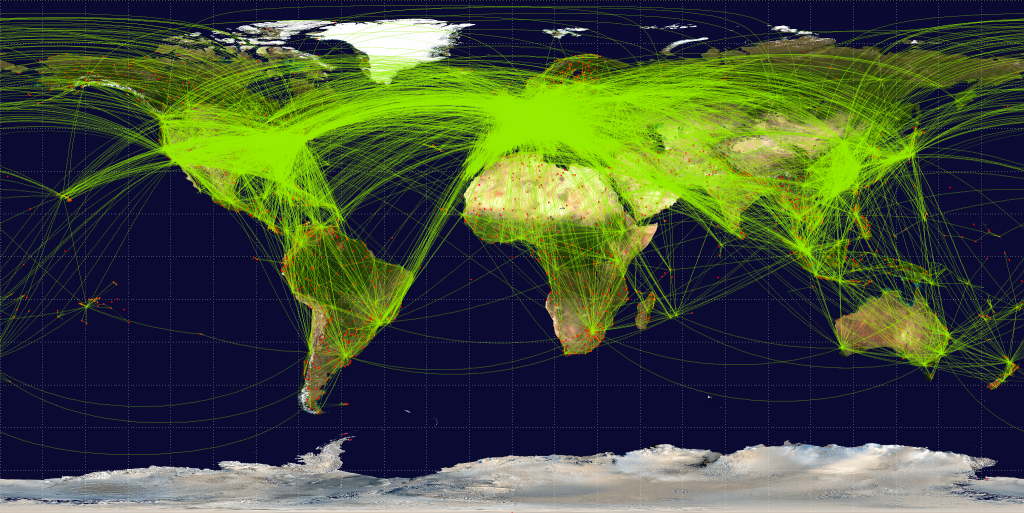Analytics for Operations, Scheduling and Pricing in Air Transportation.
Alexandre Jacquillat opened the STOR-i Annual Conference 2020 in early January. I thoroughly enjoyed his talk on Analytics for Operations, Scheduling and Pricing in Air Transportation so I decided to write an overview of the work he delivered. Alexandre demonstrated applications of both Statistics and Operational Research methods to the transportation industry. I had not witnessed such an application prior to this and I really appreciated this practical use of two topics I am currently studying. To find out more about the STOR-i conference, please read my post that details the event and all of the talks.

Alexandre is an Assistant Professor of Operations Research and Statistics at the MIT Sloan School of Management. His research applies to areas in transportation with the aim to promote efficient scheduling, operations and pricing practices. Alexandre is the recipient of several research awards, including the George B. Dantzig Dissertation Award and the Best Paper Prize in Transportation Science and Logistics from INFORMS.
This talk focussed on work that lies at the interface between analytics and transport, both of which are dynamic and growing industries. Specifically, the air transportation industry currently faces many challenges because they operate at or above capacity in order to avoid wasting any resource or time. This approach leads to flight delays and incurs costs for the airline provider. As the volume of flights increases, there is likely to be more delays set against more sales and profit. However, with fewer flights and hence fewer sales, it is likely that the number of delays will decrease. Using various results from analytical projects, Alexandre explained how they aim to support operations, scheduling and pricing practices in air transportation. In turn, this will improve the efficiency, reliability and profitability of the industry as a whole.
Operations
Alexandre started by discussing how his work has supported operations within the air transportation industry. This involves ensuring making the best use of available capacity. I mentioned above that airports operate at maximum capacity in order to avoid wasting any resource, but this often leads to delays and becomes costly. Alexandre proposes modeling this as an optimisation problem, this aims to minimise flight and passenger delays subject to flight, passenger and capacity constraints. Previously, passenger delays were not accounted for in this problem. When considering a network of flights, there is not a one-to-one correspondence between passenger and flight delays because passengers often travel through connecting flights. Therefore, a minor flight delay may cause a passenger to miss their connection and results in a major overall passenger delay once they reach their final destination. Including a new layer of passenger delays to the model proves to make flight operations more consistent.
Scheduling
Secondly, Alexandre presented ideas to optimally schedule flights. Airlines request a time slot for each of their flights and often they are allocated to a different slot because the demand for a specific slot tends to exceed the capacity. In order to minimise the overall displacement from an airline’s request, Alexandre presented a large-scale optimisation approach to slot allocation. By breaking the large-scale problem into smaller chunks, this delivered high quality, fast solutions compared to the current process. This method delivered optimal, or near-optimal, solutions at some of the largest schedule-coordinated airports. Additionally, Alexandre proposed an integrated model of both scheduling and operations that optimises scheduling in a network of airports but also captures the interdependencies between flight schedules and air traffic flow management.
Pricing
Lastly, Alexandre focussed on tackling the pricing practices in the industry. Often, flights between two destinations are priced the same even though one flight is direct and another has some number of stops for a significant length of time. This means that prices are not competitive. Alexandre outlined an experiment conducted with a global airline to assess a new, competitive pricing strategy. This demonstrated that making some minor changes to the baseline pricing practices results in a significant increase in revenue.

Alexandre concluded with some ideas for future research prospects, to read more about Alexandre’s research feel free to visit his website. I really enjoyed this talk and it encouraged me to read some more into the area, consequently, I have decided to write my first STOR-i research project on ‘Mathematical Models and Algorithms for Allocating Scarce Airport Resources’. The main focus of this project is to review relevant literature, therefore I intend to further investigate aspects of Alexandre’s research.
Future Reading
I have included a couple of papers by Alexandre that I have found interesting relating to the slot scheduling problem in air transportation
- Jacquillat, A. and Odoni, A.R., 2015. An integrated scheduling and operations approach to airport congestion mitigation. Operations Research, 63(6), pp.1390-1410.
Available at: https://pubsonline.informs.org/doi/abs/10.1287/opre.2015.1428 - Jacquillat, A. and Vaze, V., 2018. Interairline equity in airport scheduling interventions. Transportation Science, 52(4), pp.941-964.
Available at: https://pubsonline.informs.org/doi/abs/10.1287/trsc.2017.0817
1 thought on “STOR-i Annual Conference 2020: Alexandre Jacquillat”
Comments are closed.